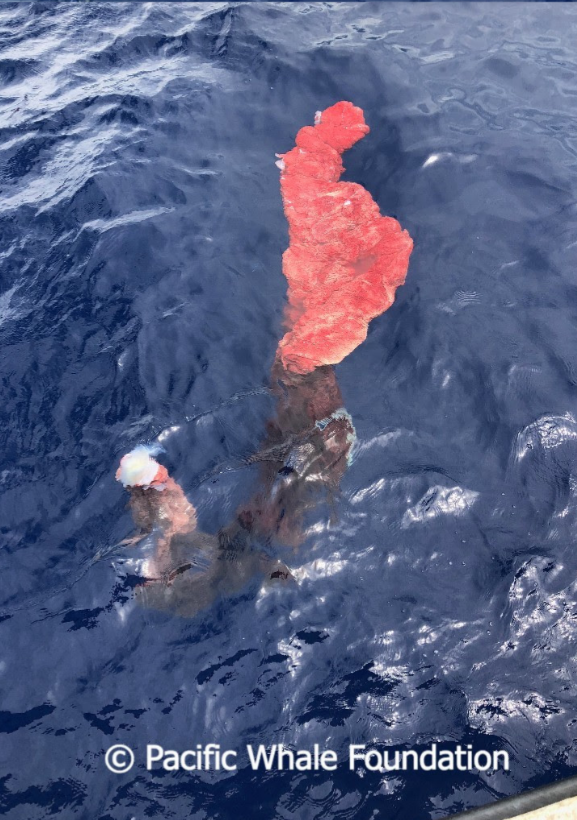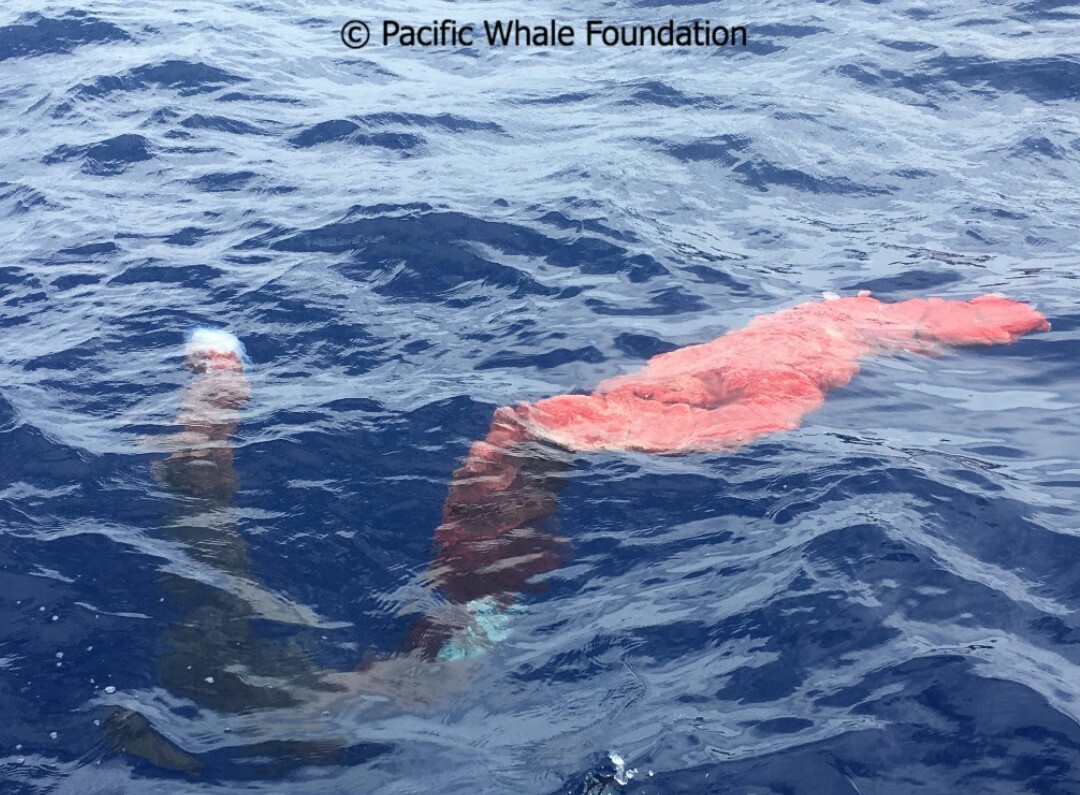Second Presumed Humpback Whale Placenta Recovered Off Maui

PC : Pacific Whale Foundation
Pacific Whale Foundation’s Ocean Explorer, on the ultimate Ultimate Whalewatch with the Experts, recovered a placenta in Maui’s waters today. As with the February 17 discovery, the placenta is presumed to be from a humpback whale.
The crew and guests were about an hour into their trip, watching a pod of humpback whales about four or five miles from Ma’alaea shore. A Redline Rafting vessel in the vicinity was the first to spot the material floating in the water, and Redline’s Captain Tim Barker alerted PacWhale Captain, Aaron Bement.
Capt. Aaron, along with certified Marine Naturalists, Emily Johnson and Laura Lundby, and Researcher-on-Board Victoria Landin, suspected the material was placenta and proceeded to collect what they could from the water after PWF’s senior researchers confirmed that they wanted to obtain samples. They had also confirmed with NOAA that soft tissue parts that are sloughed, excreted or discharged naturally by a living marine mammal in the wild may be collected for research purposes.

PC: Pacific Whale Foundation
It is generally accepted that humpback whales migrate to Hawaii’s waters to breed and calve their young, however an actual birth has not yet been documented. Humpback whale placenta would perhaps be the next best evidence of the birthing process taking place.
Scientists infer that the placenta is easily dislodged after the calf is born, and then simply floats away. In this case, the vessel crew was able to pull a portion of the material onboard, including what is likely a part of the umbilical cord. The material was encased in plastic and transported back to Ma’alaea Harbor. What could not be recovered quickly sank.
The sample was frozen to preserve it for DNA sequencing. “The next step will be delivering the placenta to a facility that can conduct genetic testing,” said PWF Senior Research Biologist, Stephanie Stack. “That will allow us to confirm if the placenta is humpback whale in origin, which we suspect it is based on its size and this being a known humpback whale calving ground.”










